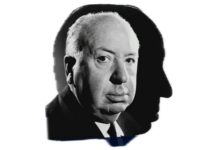The San Lorenzo Valley Water district announced the winners of its annual environmental grant contest last week.
“There are a lot of talented and knowledgeable people who live in this area, and the district is grateful that they are willing to share their energy and expertise,” said Betsy Herbert, environmental analyst for the district. “The quality and quantity of these grant proposals has increased steadily since 2004, when we initiated the program.”
Herbert explained that each proposal is given to the education program advisory commissioners, who send their recommendations to the district’s board. Commissioners are Margaret Bruce, Henry Helbush, James Gilkey, Peggy Focha-Smart and Donna Ziel. The board makes the final approval.
These are the winning environmental grants for 2011:
– “Environmental Monitoring Course,” Jane Orbuch, science teacher, San Lorenzo
Valley High School.
This ongoing course at San Lorenzo Valley High School gives 10 to 15 juniors and seniors a chance to apply their skills in science, math and English to a year-long field project. Students, who are mentored by local professionals in the field, then enter their projects to the Monterey Bay Sanctuary Symposium, Santa Cruz County science fair and Science Academy Symposium.
– “Camp KA-POW,” HOWL science program
HOWL science camps expose children to the San Lorenzo River through outdoor exploration. The water district’s grant will enable HOWL, a nonprofit, to offer two sessions of summer camp with four scholarships per session for children from low-income families. During the camp, children will hike the river, remove trash and educate the community about the health and conservation of the San Lorenzo River.
– “Map Sandhills Plants at the Olympia Watershed,” Suzanne Schettler, Greening Associates
A botanist will collect survey data of special-status plant species on the water district-owned Olympia Watershed property, compile GPS data and provide the report to the district for mapping, and also compile an identification handbook so district staff will be aware of “hot spots.” A description will be included in the district’s Consumer Confidence Survey.
– “Watershed Nature Walks,” Carol Carson
I will lead and organize a series of six watershed nature walks, free and open to everyone and accessible to people all ages and average physical abilities. Well-known guides who are experts in their fields will lead the two-hour-plus walks on Saturday mornings. I will also publicize the walks through this column — keep an eye out for announcements.
– “Olympia Wellfield Invasive Species Mapping Project,” Ken Moore, Wildlands Restoration Team
The weed control expert will map, using GPS, invasive plant species in the rare sand hills habitat at Olympia Wellfield, including French broom, Portuguese broom, acacia, eucalyptus, black locust, yellow star thistle, Italian thistle, milk thistle and fennel. The district will also receive instructions for controlling each species.
– “Olympia Wellfield Education & Acacia Control Program,” Ken Moore, Wildland Restoration Team
Moore will organize and lead a volunteer program to facilitate removal of acacia at district-owned Olympia Wellfield. Eight volunteer weekend events (four hours each) will provide oversight of weed-control efforts and teach participants about the importance of the field’s habitat and its role as key source of water for the San Lorenzo Valley.
– “Olympia Wellfield Education & Broom Control Program,” Ken Moore, Wildland Restoration Team
Moore will lead volunteers to remove French and Portuguese broom from Olympia Well field and educate participants about the key source of water for the San Lorenzo Valley.
– “The Western Pond Turtles of Santa Cruz County,” Jordan Plotsky Productions
Plotsky will produce a high-quality 20-minute educational video to profile western pond turtles of the San Lorenzo River Watershed and Santa Cruz County, with a brief overview of habitat, life cycle and new findings regarding this unique population. The video will highlight threats to the turtle’s survival and management efforts to promote the long-term welfare of the turtles and their habitat.
Carol Carson is an environmentalist and writes a nature column for the Press-Banner. She has a master’s degree in education and has been a docent for Henry Cowell Redwoods State Park and taught courses on Big Basin State Park for UCSC Extension.











